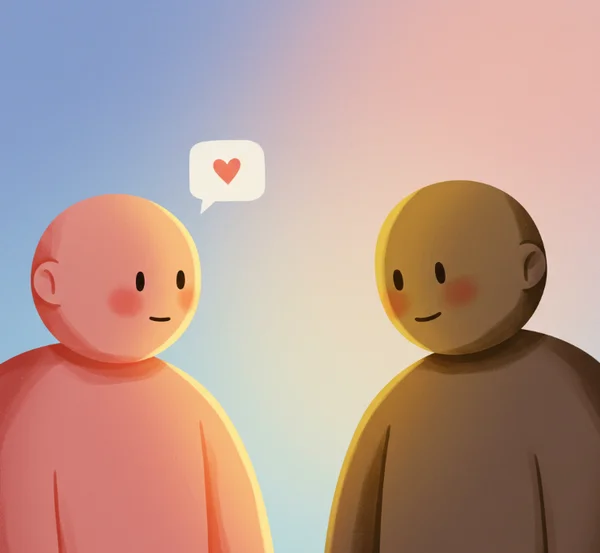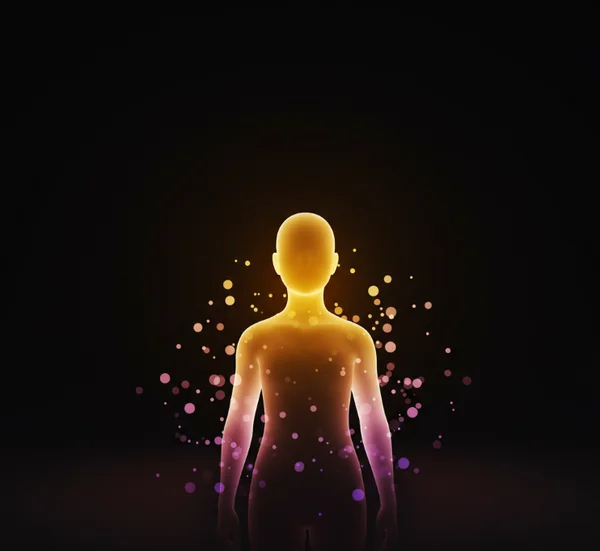Navigating "Am I Gay?": Practical Exploration Tips
May 17, 2025 | By Riley Foster
Asking yourself "Am I Gay?" can feel overwhelming, confusing, or even exciting – often a mix of everything. How do I know if I'm gay? It's a question many people grapple with at some point, and embarking on this journey of sexuality exploration is completely normal. If you're seeking direction, this sexuality exploration guide offers practical am i gay tips and perspectives to help you navigate your thoughts and feelings with more clarity and self-compassion.
Understanding the Question: What "Am I Gay?" Really Means
Before diving into tips, let's unpack the question itself. Often, the search isn't just for a simple "yes" or "no" answer. It's about understanding your deeper feelings, romantic and sexual attractions, and how you see yourself fitting into the world.
Beyond Labels: Focusing on Feelings and Attractions
While labels can be helpful for community and self-understanding for some, try focusing initially on the core experiences. What feelings arise when you think about different genders? Who are you genuinely drawn to, romantically or sexually? Going beyond labels allows for more authentic exploration.
It's Okay Not to Know: Embracing Uncertainty
Realize that uncertainty is a perfectly valid part of this process. You don't need to have all the answers right away. It's absolutely okay not to know definitively. Give yourself permission to explore without the pressure of an immediate conclusion.

Practical Tips for Your Sexuality Exploration Journey
Ready to delve deeper? Here are some actionable am i gay tips to guide your sexuality exploration journey:
Tip 1: Pay Attention to Your Authentic Attractions
Try to notice who catches your eye or sparks your interest, without judgment or filtering. Pay attention to your spontaneous authentic attractions. Do you find yourself more drawn to people of the same gender, different genders, or multiple genders? This mindful observation can be revealing.
Tip 2: Reflect on Past Experiences and Feelings
Think back on your past experiences. Consider crushes (even childhood ones), fantasies, significant friendships, or emotional connections. Can you reflect on these and identify any recurring patterns in your feelings or attractions? Sometimes looking back provides clarity for the present.

Tip 3: Explore LGBTQ+ Media and Representation
Engage with LGBTQ+ media – books, films, TV shows, music. Seeing diverse stories and representation can be validating and help you find resonance. Do certain characters or storylines connect with your own experiences or aspirations? This can be a gentle way to explore possibilities.
Tip 4: Consider Journaling Your Thoughts and Emotions
Writing can be a powerful tool. Try journaling about your thoughts, questions, emotions, and attractions. It provides a private space to process complex feelings and can help uncover insights you might not consciously recognize otherwise. It's a great form of questioning sexuality help.
Tip 5: Online Quizzes as Reflection Tools
Online quizzes, like the gay test offered on our site, can serve as structured reflection tools. They present questions you might not have asked yourself. However, use wisely! View the results as prompts for further thought, not definitive answers about your identity. They are one small piece of a much larger puzzle.
Seeking Support When Questioning Sexuality
You don't have to navigate this alone. Seeking questioning sexuality help is a sign of strength. Consider these avenues:
Finding Trusted Friends or Allies to Talk To
If you feel safe doing so, talk to trusted friends or allies who you know are supportive and open-minded. Sharing your thoughts can alleviate feelings of isolation and offer valuable external perspectives. Choose someone who listens without judgment.

Connecting with Supportive LGBTQ+ Communities
Exploring online forums or local supportive communities can connect you with others who have similar experiences. Finding peer LGBTQ+ support can be incredibly validating and informative. Ensure any online spaces you join prioritize safety and respect. Where to find LGBTQ support? Reputable LGBTQ+ organizations often list resources.
When to Consider Professional Guidance
If your questioning causes significant distress, anxiety, or impacts your mental health, seeking professional guidance from a therapist or counselor experienced in LGBTQ+ issues is highly recommended. They can provide a safe, confidential space and expert support.
Important Reminders on Your Exploration Path
As you continue exploring, keep these points in mind:
Your Journey, Your Pace: No Need to Rush
This is your journey, and it unfolds at your pace. There's no rush to figure everything out or adopt a label. Be patient and kind to yourself throughout the process.
Sexuality Can Be Fluid: Allow for Change
Understand that sexual fluidity is real for many people. Your feelings and attractions might evolve over time, and that's okay. Allow for change in your understanding of yourself.
Self-Acceptance is Key, Whatever the Outcome
Ultimately, the goal is self-acceptance. Whether you identify as gay, bisexual, straight, queer, or something else entirely, embracing who you are is paramount. The outcome of your exploration should lead to greater self-love.

Resources for Questioning Sexuality
Navigating the "Am I Gay?" question is a significant part of personal growth for many. We hope these am i gay tips provide a helpful starting point for your sexuality exploration guide. Remember to be gentle with yourself, trust your feelings, and seek support when needed. Tools like the online gay test can be part of this process, offering structured reflection.
What piece of advice resonated most with you? Or do you have other tips that helped you in your own exploration? Sharing experiences can help others feel less alone.
If structured questions help your thinking process, feel free to explore the Gay Test on GayTest.me.
Exploring the "Am I Gay?" Question
-
How do I know if my feelings are real or just confusion?
This is common! Distinguishing deep-seated attractions from temporary curiosity or social influence takes time and introspection. Focus on recurring feelings and patterns over time. Journaling (Tip 4) can help track and understand these. It's okay if it takes a while to gain clarity.
-
Are there definitive signs someone might be gay?
There are no universal, definitive "signs". While common experiences exist (like strong same-sex attractions, identifying with LGBTQ+ characters), sexuality is diverse. Relying on external "signs" is less helpful than focusing on your internal landscape of feelings and attractions. What are signs you might be gay? is less important than "What do I feel?".
-
What if I'm attracted to more than one gender?
That's perfectly valid! Attraction isn't always exclusive to one gender. You might explore labels like bisexual, pansexual, queer, or choose no label at all. Our article on the sexuality spectrum might offer more insights. (Adjust link if a relevant article exists)
-
Is it normal to question my sexuality even if I've dated the opposite sex?
Absolutely. Past relationships don't dictate your current or future orientation. Many people question their sexuality later in life, regardless of previous relationship history. Is it normal to question sexuality? Yes, very much so.
-
Where can I find reliable information and support for questioning sexuality?
Look for established LGBTQ+ organizations (like The Trevor Project, PFLAG, local LGBTQ+ centers), reputable mental health resources specializing in LGBTQ+ issues, and well-moderated online communities. Be critical of sources; prioritize those focused on support and accurate information over definitive "tests" or stereotypes. Exploring resources mentioned in our sexuality exploration guide section can be a start.